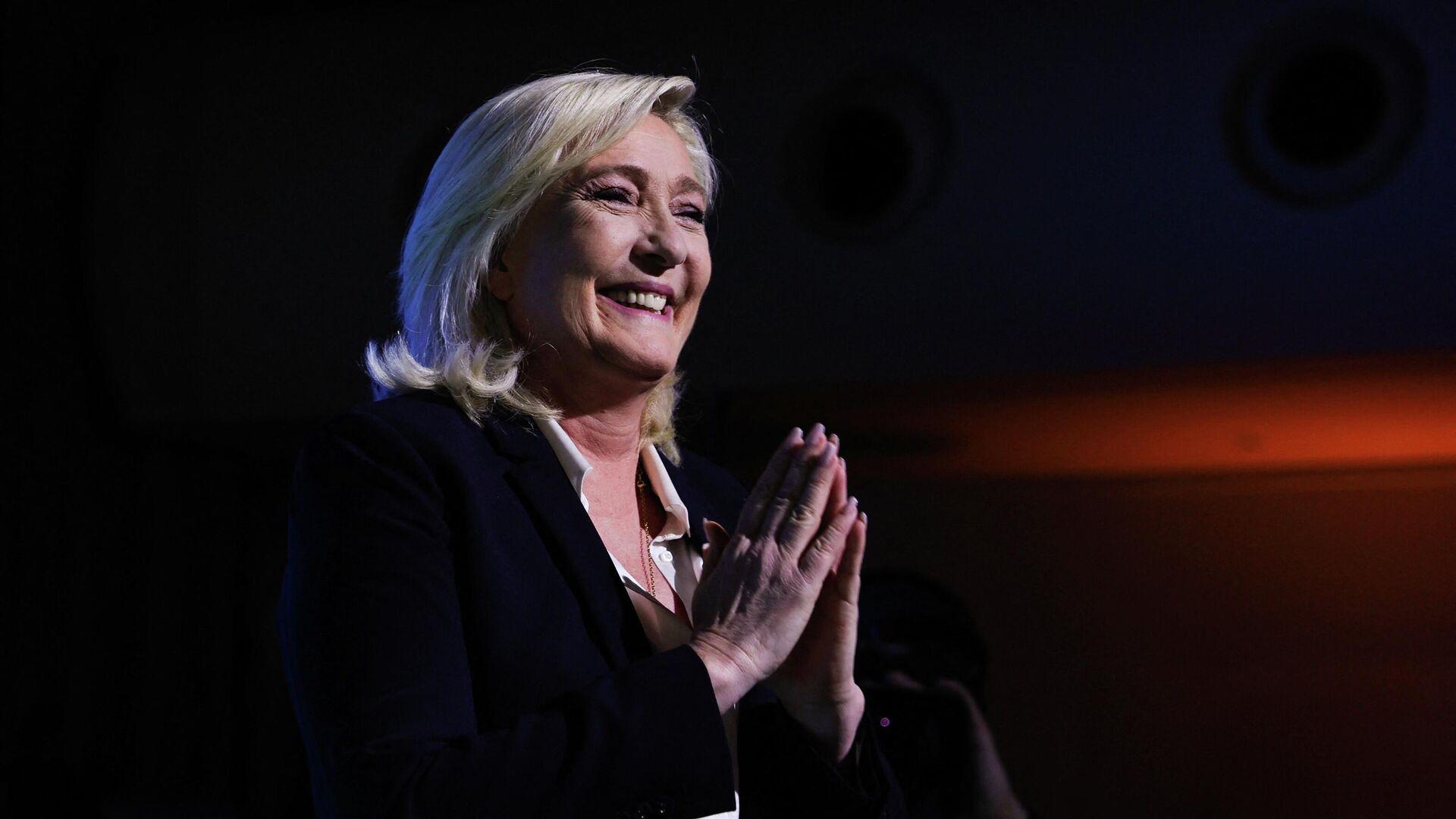European far-right turn New political landscape emerges
Poor governance in the EU, particularly exacerbated by Macron's policies in France, has led to a rise of extreme-right anti-immigrant nationalist parties.
In the Netherlands and Spain, extreme-right nationalist parties have shown strong results in recent elections but have so far failed to form governments in these countries. In France, elections are set for June 30, where the extreme-right National Front led by Marine Le Pen could garner over a third of the vote, with another ultraright group "Reconquest" at five percent. This could potentially form a coalition majority of ultraright parties, joined by moderate Republicans. In Italy, the government is led by the extreme-right nationalist group "Brothers of Italy," led by Giorgia Meloni—the first woman in the country's history to become prime minister.
Western society suffers from growing inequality, deteriorating working conditions, and the degradation of social systems, particularly state healthcare. Economic growth under neoliberalism fails to improve the quality of life for a significant portion of the population. Many people, often forced to work multiple jobs, continue to live in poverty, witnessing the wealth of billionaires grow. Many are concerned about increasing competition between different groups of workers, especially between "locals" (often descendants of previous waves of migrants) and migrants for jobs.
Parts of society are driven to fury by left-wing and liberal demagoguery (sexually tinted claims about "144 genders," pitting women against men within aggressive ultra-feminism, all against the backdrop of increased retirement age in France, attempts to introduce additional green taxes, etc.). Ultimately, all of this has fueled an ultraright reaction.
Extreme-right parties, namely nationalists and supporters of labor migration restrictions, are gaining influence in Europe. A similar trend can be seen with Trump in the US, though this is a very specific case.
Ultraright propaganda, as always, is based on the principles of "national unity" in the fight against foreigners and non-believers, whom they declare the source of all problems. It's a simple mechanism, but sometimes it works.
In foreign policy, the extreme right is inclined towards economic protectionism, defending national economies and borders, and criticizing the European Union. In domestic policy, they advocate for restricting migration. However, the overall situation is not entirely clear.

Donald Trump is a supporter of Reaganomics, tax cuts, and deregulation. Therefore, he is hailed as a hero by much of big business and the stock market. Most big businesses welcome him. Will such a situation arise in the Netherlands, as well as in Spain and France if the far right wins? It remains unclear. Possibly, it will, but socially oriented projects might emerge too. After all, the ultra-right dictator Francisco Franco, who ruled Spain for several decades in the 20th century, invested significant state funds in industrial development and housing construction. However, this time, it may all be limited to promises. However, we do not yet know.
In terms of ideology, it will likely be something akin to a reconquest. By the way, this is the name of one of France's far-right parties led by Eric Zemmour. The far right will want to eradicate the left and left-liberal ideological heritage. Cultural wars will intensify in the West. The far right will proclaim slogans like "God, family and country!" They may try to remove 142 new genders from school textbooks, leaving only the two previous ones, and strengthen elements of patriotism, nationalism, and statism.
For example, in Spain, the center-left coalition currently in power may contribute to the idealization of Arab Muslim Spain in the media under its control, while the far right, like the Vox party, will emphasize the valor of Spanish Christian knighthood, which "liberated Spain from Muslims." The success of the far right will be accompanied by increased intolerance towards migrants and xenophobia.
Supporting these national far-right fronts, party blocs, and alliances are social groups that vote for them. These include small businesses, parts of the working class (especially precarious layers, new independent semi-workers like long-haul truck drivers), some segments of big business, and some pensioners. Small businesses, often teetering on the brink of bankruptcy by large companies and equal competitors, fear competitors of another faith or ethnicity.
In France, pensioners are outraged by Emmanuel Macron's government's decision to raise the retirement age; many have turned away from him and sided with the far-right National Front. This has greatly strengthened Marine Le Pen's position.

The response of other factions within the existing system could be a new People's Front akin to France and Spain in the 1930s. This coalition would unite centrists, left-wing liberals, social democrats, neo-Stalinists, Trotskyists, parts of the Green movement, pseudo-anarchists, and feminists. The People's Front is not a random phenomenon. It is linked to attempts by certain political groups, parts of the bourgeoisie, union bureaucracy, and left-wing activists to counter the threat posed by the far right. Today, it is supported by part of the working class controlled by unions, segments of educated professionals, a large portion of students, and certain layers of business for whom the left is less objectionable than the far right.
In France, the new People's Front led by former Trotskyist of the Lambertist tendency Jean-Luc Mélenchon is forming rapidly, and its ratings are rising. Some of its members hope to create the second-largest bloc in parliament after the far-right National Front if they do not win in the parliamentary elections on June 30.
Leftists in Spain, France, and Italy are trying to show that the rise of extreme nationalists to power is a threat not only to migrants and minorities but also to the representative democracy system itself. Their slogan is, "Stand on our side, because only we can save democracy." That may be correct, but it's difficult to imagine that Stalinists, Trotskyists, and other followers of Vladimir Lenin's ideas are enthusiastic about parliamentary democracy.
The confrontation between left and far-right parties in Europe in the 1920s and 1930s was accompanied by mass terror and civil wars. It is appropriate to ask if this could be repeated. Again, nationalists and ultra-rightists are opposed to left-wing people's fronts, as in the 1930s. However, this repetition is occurring in a greatly softened, "light" version.
Historically, ultra-rightists in Germany, Italy, Spain, and several other countries were instruments of ruling circles (large companies, higher officials) used against workers' revolutions from 1917 to 1923 in Germany, Italy, and Austria-Hungary. They also responded to the revolution in Spain from 1936 to 1939. Ruling groups needed to bring to power tough nationalist radicals capable of suppressing opponents.
If small and medium-sized businesses gave the ultra-right a massive influx of supporters, big capital and the security forces put money and weapons into their hands. Once in power, far-right party leaders in Germany, Italy and Spain merged with the other upper classes of Western society, simultaneously destroying the labor protest movement.
But today, there are no social revolutionary and class movements threatening to replace the capitalist system with a system of autonomous assemblies and elected workers' councils subordinate to them. Meanwhile, the rise of the European ultra-right in the 1920s and 1930s was a reaction to these movements. The ultra-right became a European counter-revolution, an attempt by large companies, the military, officials, and small businessmen to stop workers' uprisings that threatened to take away not only power but also property from businesses.
Today, there are no social revolutions in the West and the USA. There is no reason to believe that the ultra-right will try to destroy leftist groups. Actually, why would they?

Back in the 1920s-1930s, leftist groups could influence workers' revolutionary movements, which posed an existential threat to businesses. Today, there is no radical labor movement serving as a base and support for the left. So, while some leftist groups might face challenges, others have a good chance of surviving the era. Therefore, the situation today is quieter (at least for now) than in the 1920s-1930s. There is no desperate struggle, no threat of a social class revolution, and no leftist groups capable of manipulating it to seize power.
Consequently, the ruling classes and the far-right have no need to drown their opponents in blood. They can easily limit themselves to parliamentary elections, secure power, become more respectable, and grow wealthy through laws favorable to corporations. At that point, ordinary realpolitik will determine the course of events, without mass terror or risky military-political adventures in the style of the Third Reich, which led Germany and Italy to defeat and total destruction.
Today, the picture differs from the 1920s-1930s. It looks like this: far-right lite versus cautious leftists.
It is worth adding that in the absence of social revolutions, there are no irreconcilable groups outside the traditional left. There are no movements similar to the council communists, supporters of Anton Pannekoek and Otto Rühle, nor anti-republican factions of Spanish anarcho-communists (like "Friends of Durruti") who believed in the necessity of destroying not only the far-right army of General Franco but also the left Republic.
These radical forces did not recognize both right-wing dictatorships and republicans, considering the latter a facade for the power of big business and bureaucrats. Today, there are no revolutionary groups advocating for direct rule by assemblies and their elected workers' councils, instead of party power, party-state officials, and unions. Irreconcilable revolutionary factions of workers have disappeared (there are only very small and insignificant groups of intellectuals and workers sharing such ideas). Their absence is a significant argument that, in the event of success, the far-right will not behave too harshly. Essentially, they have no one to fight with.
It is most likely (though not predetermined) that the far-right will eventually become a respectable part of the modern political spectrum in the West.
Also of interest is the attitude of these forces, as potential future rulers of Europe, towards the two largest armed conflicts of the present day — in Ukraine and the Middle East.
In the case of Ukraine, as shown by Italy's experience, no decisive changes are likely. What is happening could be called "realpolitik." European corporations and state apparatuses, regardless of who controls them, do not want Moscow to win and expand its influence in Europe. However, there may be nuances. An exception might be Germany, where the far-right AfD has a pronounced pro-Russian stance, but this party has no prospects of coming to power in the foreseeable future. In Spain, France, and the Netherlands, the situation currently resembles the Italian one.
In the case of the Middle East, European far-right parties are pro-Israel, similar to Trump in the United States. Israel is an important trading partner for European states and one of the world's centers for high technology. Additionally, it does not threaten the interests of European powers. Finally, the far-right admires Israel's policy towards religious fundamentalists like Hamas.
The views and opinions expressed by guest columnists in their op-eds may differ from and do not necessarily reflect the views of the editorial staff.








